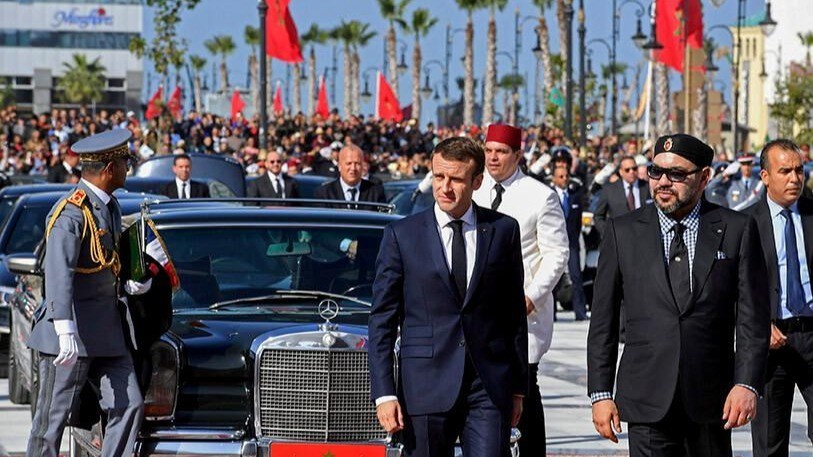
After years of diplomatic frost, France and Morocco are charting a renewed course in their historically close relationship, marked by a series of symbolic and strategic gestures.
Once strained by tensions over Western Sahara and restrictive visa policies, ties between the two nations are showing signs of vigorous recovery.
For decades, France and Morocco maintained a partnership rooted in economic collaboration, cultural affinity, and shared geopolitical interests.
However, recent years saw this relationship severely tested. The core of the discord lay in France’s ambiguous stance on Western Sahara, a territory Morocco considers an inseparable part of its national identity.
Rabat interpreted Paris’s hesitancy as a lack of support, which was further compounded by France’s 2021 decision to sharply curtail visas for Moroccan nationals over deportation disputes.
In response, Morocco froze diplomatic channels, delayed joint projects, and publicly criticised Paris. Moroccan media, typically reserved in its coverage of France, accused the French government of “neocolonial arrogance,” while Paris offered little in the way of reassurance.
But in July 2024, the tide began to turn. In a message timed with Morocco’s Throne Day, French President Emmanuel Macron officially endorsed Morocco’s autonomy plan for Western Sahara.
The move was heralded in Rabat as “historic,” effectively breaking the diplomatic deadlock. For Moroccan officials, it was the necessary precondition to reset ties without appearing to capitulate.
The momentum for reconciliation has only grown since.
A state visit by King Mohammed VI to France is expected by early 2026, and a slew of joint initiatives—ranging from migration dialogue in Paris to high-level ministerial visits—are reactivating channels of cooperation.
Experts say France’s shift reflects not only a recalibration of its Maghreb strategy but also an effort to reassert influence amid growing Moroccan partnerships with the U.S., Israel, and key European states like Spain and Germany.
Paris appears keen to recover its diplomatic standing in North Africa after being perceived as increasingly detached.
Beyond politics, symbols have played a vital role. The appointment of First Lady Brigitte Macron to the board of Rabat’s Royal Theatre Foundation and the joint appearance of Princess Lalla Hasnaa and President Macron at a global ocean summit signal a commitment to cultural and environmental collaboration.
Perhaps the most powerful symbol of rapprochement is France’s announcement to open a consulate in Laayoune, Western Sahara—a move that aligns closely with Moroccan aspirations and underscores the depth of France’s new position.
As both nations look toward a future of modernised cooperation, the rekindled Franco-Moroccan alliance appears not only restored but strategically reinforced.



